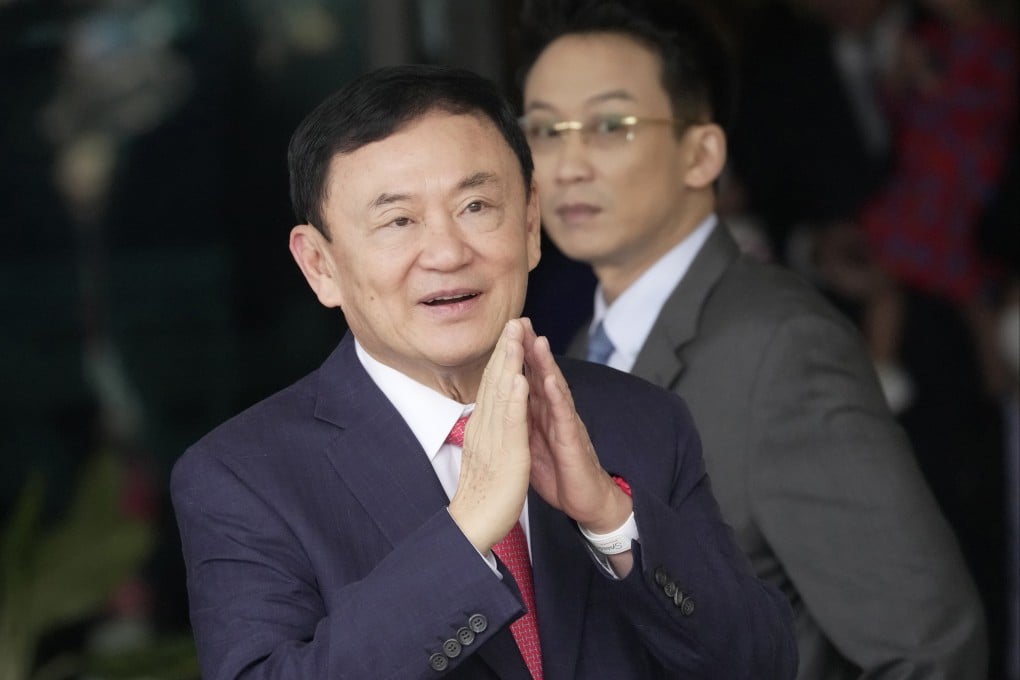Thailand’s ex-PM Thaksin to face trial for royal defamation amid conservative backlash against his influence
- Thailand’s lese-majeste law, which carries up to 15 years in jail per conviction, has been wielded against pro-democracy activists in recent years
- The case against Thaksin is seen as a conservative blowback against the Thaksin clan’s influence in Thai politics for over two decades

The 74-year-old billionaire, the nation’s most influential politician over the last two decades, faces the kingdom’s tough lese-majeste law, which shields the powerful monarchy from criticism, over an allegation that he defamed the monarchy in an interview with South Korean media in 2015 while in self-exile.
He also faces a separate charge under a law for criminal computer crimes, according to the attorney-general’s office.
Thaksin did not appear before the court on Wednesday after his lawyers asked for a postponement, saying he had contracted Covid-19.
“The Attorney-General has decided to indict Thaksin Shinawatra on all charges, and Thaksin must appear before the court on June 18,” Prayuth Bejraguna, a spokesman for the office, told reporters.
